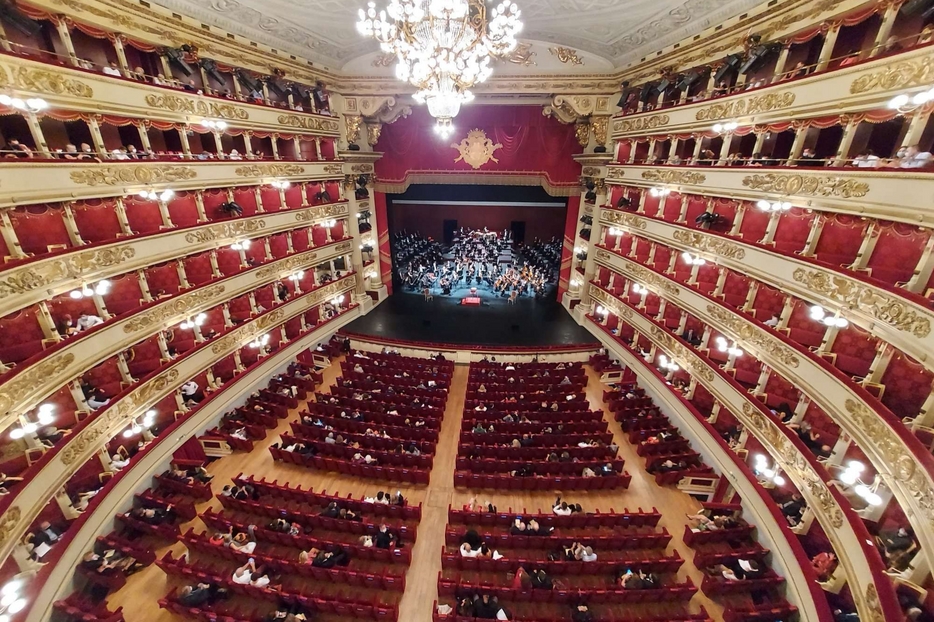



Teatro alla scala full#
The aim is to base the behavior and way of working in both relationships within the Foundation itself and those with outside parties on propriety, equity, integrity, loyalty and professional rigor, making full compliance with the laws and regulations of the countries in which the Foundation operates the focus of attention, as well as the observance of business procedures. Given the complexity of the situations in which the Foundation has to operate, it is important to define clearly and unambiguously the set of values that the foundation recognizes, accepts and shares, as well as the responsibilities that the Foundation assumes towards the internal and external world. Following in the footsteps of the artistic and cultural tradition of the La Scala theatre in Milan, the Foundation’s role is to promote, foster and increase the teaching, training, updating and orientation of anyone intending to dedicate themselves, or already dedicating themselves, to activities relating to culture, the musical arts and the theatre, in particular the training of artistic, technical and administrative middle managers, fostering or encouraging all initiatives designed to extend and spread the knowledge of these disciplines. L’Accademia Teatro alla Scala was established on 19 December 2001 by the following founder members: Fondazione Teatro alla Scala di Milano (the Foundation of the La Scala Theatre, Milan), Camera di Commercio Industria Artigianato e Agricoltura di Milano (the Milan Chamber of Commerce), Politecnico di Milano (Milan Polytechnic) and Università Commerciale Luigi Bocconi di Milano (the Luigi Bocconi University, Milan). The educational activities are complemented by other proposals in various areas: the Education and Outreach Area, providing workshops and learning initiatives for students and instructors in schools of all types and levels, in order to spread knowledge of the performing arts and related professions, and the Cultural Cooperation Area, offering international research and collaboration projects promoted by the European Community or by local governments to export the La Scala model of professional training. The teaching method provides daily field experiences in the form of concerts, performances, exhibitions and seminars, culminating in the Academy Project, a yearly feature of the Teatro alla Scala opera season produced entirely by students. The opera and ballet season runs from December through the following November other performances are scheduled year-round.The curriculum comprises four departments – Music, Dance, Stage Workshops, Management – with some thirty courses for over one thousand students from every corner of the world: approximately 500 for professional courses and 500 for beginning courses. A peak inside the main hall is breath-taking, but nothing compares to the full experience, and there are certainly deals to be had on tickets. Even those who are not opera aficionados will be dazzled by the gold and mirrored entryway (which doubled as a casino in the theatre's early years) and the elegant boxes encircling the stage. For those who enjoy operatic history, visit the Museo teatrale alla Scala, complete with original hand-written scores and manuscripts. Today, the theatre seats 1,987 spectators, and its repertory is varied, including a large number of unfamiliar works balanced by a limited number of popular favourites. It takes its name from the church Santa Maria alla Scala, demolished to make room for the new theatre. This world-renown opera house, just steps from piazza del Duomo, was founded in 1778 under the auspices of Empress Maria Theresa of Austria, to replace the Royal Ducal Theatre which burned down two years earlier.


 0 kommentar(er)
0 kommentar(er)
